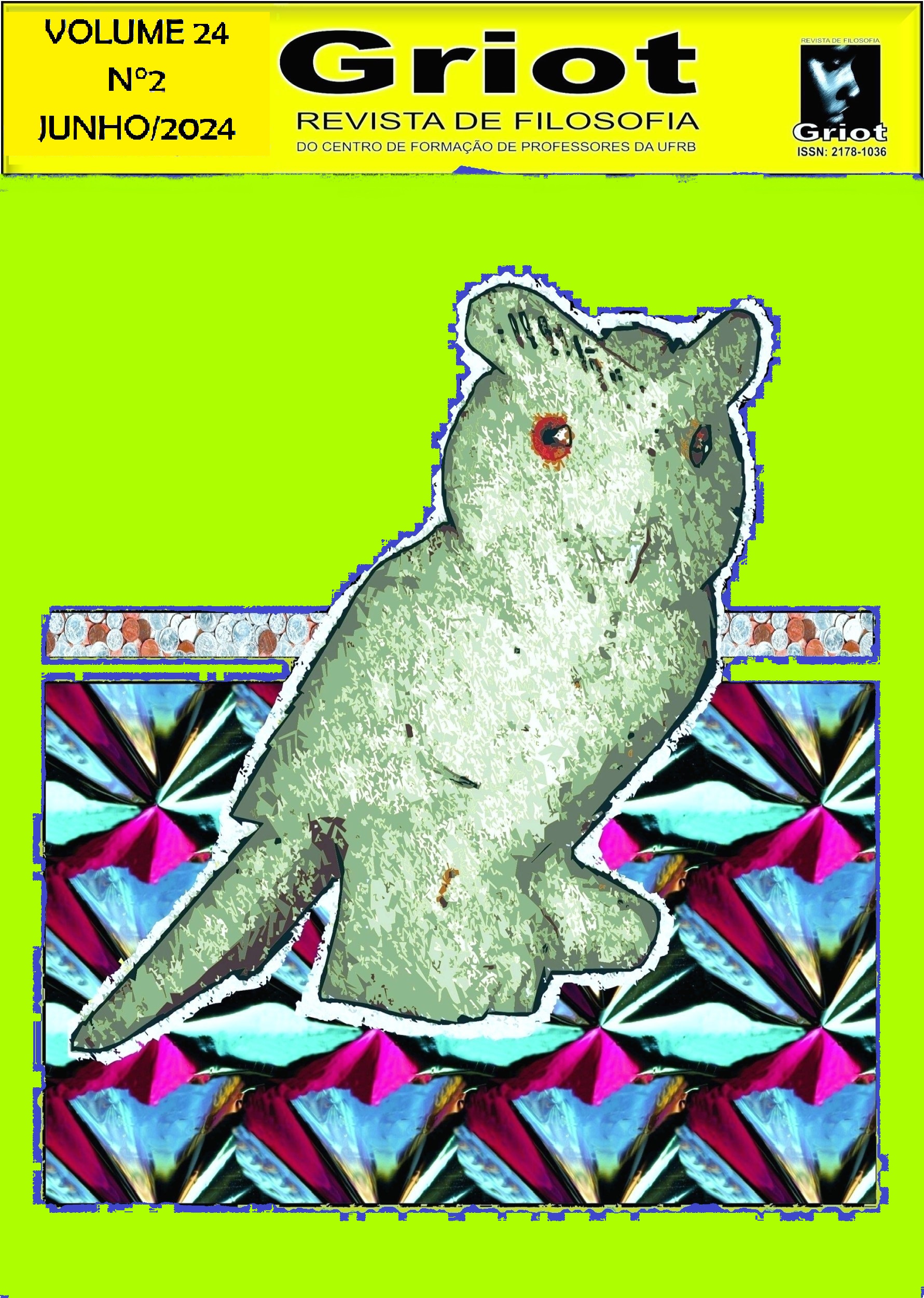Observations on the unfolding of the Dichtungsvermögen: its presence and consequence in the first edition of Kant's Critique of Pure Reason
DOI:
https://doi.org/10.31977/grirfi.v24i2.4807Keywords:
Kant; Dichtugsvermögen; Tetens.Abstract
This work aims to analyze the action of the poetic or inventive imaginative faculty (Dichtungsvermögen) in the Transcendental Deduction of the Categories, in the first edition of Kant's Critique of Pure Reason (1781), and to examine the emphasis that this author attributes to it in his Anthropology. This work defends the thesis that this capacity of the imaginative faculty would have a fundamental role in the development of the subjective deduction presented by Kant in the first edition of his Critique of pure reason, indicating, as it would make it possible to consider from its functioning a theory of psychological judgments, however, we will emphasize that such a possibility would be limited in the Critique, a fact that we consider to add its field of action and investigation to Anthropology, which would characterize this last work as a fertile field for psychological action and investigation.
Downloads
References
BAUMGARTEN, A. Metaphysica. Halle, repr. 7ª ed 1779. Hildesheim: Olms, 1963.
CASSIRER, E. Kant, vida y doctrina. Tradução Wenceslau Roces. Cidade do México: Fondo de Cultura Económica, 1993.
CASSIRER, E. El problema del conocimiento. 3 vol. Tradução Wenceslau Roces. Cidade do México: Fondo de Cultura Económica, 1956.
MANGANARO, P. L’Antropologia di Kant, Napoli, Guida Ed. 1983.
WOLFF, C. Philosophia Practica Universalis: Methodo Scientifica Pertractata. Praxin Complectens, Qua Omnis Praxeos Moralis Principia Inconcussa Ex Ipsa Animae Humanae Natura a priori Demonstrantur. Nova York: Nabu Press, 1738.
WOLFF, C. Philosophia Prima Sive Ontologia, Methodo Scientifica Pertractata, Qua Omnis Cognitionis Humanae Principia Continentur. Nova York: Kessinger, 1730.
WOLFF, C. Psychologia Empirica: Methodo Scientifica Pertractata qua ea, quae de anima humana indubia experientiae fide constant, continentur et ad solidam universae philosophiae practicae ac theologiae naturalis tractationem via sternitur. Nova York: Kessinger, 1732.
WOLFF, C. Psychologia rationalis. Frankfurd: Rengeriana, 1734.
KANT, I. Gesammelte Schriften Hrsg. Bd. 1-22 Preussische Akademie der Wissenschaften, Bd. 23 Deutsche Akademie der Wissenschaften zu Berlin, ab Bd. 24, Akademie der Wissenschaften zu Göttingen. Berlin 1900ff.
KANT, I. Crítica da Razão Pura. Tradução de Manuela Pinto dos Santos e Alexandre Fradique Morujão. 7ª ed. Lisboa: Fundação Calouste Gulbenkian, 2010.
KANT, I. Réflexions Méthaphysiques (1780-1789). Traduction de Sophie Grapotte. Paris: Vrin, 2011.
KANT, I. Antropologia de um ponto de vista pragmático. Trad. Clélia Ap. Martins, São Paulo, Iluminuras, 2009.
KANT, I. Manuscrit de Duisbourg (1774-1775). Choix de Réflexions des années 1772-1777. Traduction de François-Xavier Chenet. Paris: Librairie Philosophique J. Vrin. 1988.
KANT, I. Briefwechsel von Imm. Kant. FISCHER, H. E. (Ed.). 3 Bänden. München: Georg Müller, 1912.
KANT, I. Lições de Metafísica. I. Kant. Trad. Bruno Cunha, Petropolis RJ, ed. Vozes, 2021.
KANT, I. Système et représentation: la déduction transcendentale des catégories dans Critique de la raison pure. Grenoble: Jérôme Millon, 1993.
TETENS, J. N. Philosophische Versuche über die menschliche Natur und ihre Entwickelung. 2 Bänden. Leipzig: Weidmanns Erben, 1777.
PIEROBON, F. Kant et la fondation architectonique de la métaphysique. Grenoble: Jérôme Millon, 1990.
PASCHI, M. L’immaginazione come forma del trascendentale. Pisa: Giardini editori, 2005.
VAIHINGER, H. Kommentar zu Kants “Kritik der reinen Vernunft”. Stuttgart/ Berlim/Leipzig: Union Deutsche Verlagsgesellschaft, 1892
ZAPPALORTO, M. Johann Nicolaus Tetens: il Locke tedesco? Catanzaro: Rubbettino, 2011.
Downloads
Published
How to Cite
Issue
Section
License
Copyright (c) 2024 André Renato Oliveira

This work is licensed under a Creative Commons Attribution 4.0 International License.
The authors who publish in Griot: Revista de Filosofia maintain the copyright and grant the magazine the right of first publication, with the work simultaneously licensed under the Creative Commons Attribution 4.0 International License, allowing sharing and adaptation, even for commercial purposes, with due recognition of authorship and initial publication in this journal. Read more...









































































